|
Heverlee (Belgium), 02 March 2020: Don Bosco Youth-Net ivzw, the European network of Salesian youth organisations, participated in the writing of the joint Position Paper: Inclusive Youth and Education Programmes. The document, subscribed by a large number of European and national civil society organisations, is an urgent appeal to political decision makers to take measures regarding more inclusive EU youth and education programmes. Don Bosco Youth-Net ivzw, connecting 18 organisations in 16 countries dedicated to youth and to young people with fewer opportunities, sees inclusive youth work as an essential part of their daily work. As implementers of inclusive youth work projects, DBYN strongly believes that truly inclusive education programmes at European level should be accessible for every young person. This position paper presents 9 recommendations and concrete practical suggestions for an inclusive implementation of the European youth and education programmes Erasmus+ and the European Solidarity Corps. These recommendations are based on the gathered experience of implementing the programmes in the areas of youth work, adult education, vocational training as well as school education and voluntary services. DBYN hopes that these recommendations will improve the new generation of programmes in order to facilitate the participation of ALL young Europeans. --- end press release --- Further information: Don Bosco Youth-Net ivzw Naamsesteenweg 37, B-3001 Heverlee · +32 (0)16 48 78 90 [email protected] www.donboscoyouth.net Deutscher Caritasverband e.V., EU Office Lisa Schüler EU Funding Officer Rue de Pascale 4-6, 1040 Brussels · +32 2 230 45 00 [email protected] www.caritas.de
2 Comments
Heverlee (Belgium), 16th December 2019: In the fight against climate change, Don Bosco Youth-Net ivzw, the European network of Salesian youth organisations, has become a member of the Don Bosco Green Alliance, the worldwide collective of young people from the Don Bosco family of institutions, who contribute to global environmental action, thought and policy. The COP25 in Madrid is just over and many people are saying that “We've lost an important opportunity”. Just before the UN Climate Change Conference started, DBYN became a full member of the Don Bosco Green Alliance (DBGA). To become a member of the Don Bosco Green Alliance, you first need to be an organisation or institution in the Don Bosco world: we are. Secondly, you need at least three specific commitments towards protecting and bettering the environment. Here, we have asked you for ideas through a survey a few months ago and the three following commitments came out, which DBYN has approved for joining the DBGA:
Q&A Together with your suggestions, there were also some questions related to these commitments and our membership in the Don Bosco Green Alliance. Here are our answers (we have summarised some questions): Will it be an extra cost for DBYN? Or an investment? Let's be clear: to stop or limit climate change, we (human beings) have to pay and we have to make investments. Sometimes with money, but even more importantly, we have to change some of our habits and our “Western” way of living: this seems to be the tricky part. Why should I take the train when I can save 5 hours taking a flight? In order to do this, we have to invest time and maybe money, but booking in advance makes even a train ride cheaper than a flight. Some people might have the feeling that they are losing flexibility and we have to change our habits. But on the other hand, if we are not doing it, we will have to invest much more in a later time. That is the overall truth. There is also the option to save money and resources: for example, if DBYN manages to organise online meetings (commitment 3a), our expenditures for travelling will get less. It is the same with commitment 3b: if we recycle and reuse material on our own, we can save money and resources and more vegetarian food also means lower costs for the meals (commitment 1). For the second commitment, we just have to use the knowledge and resources that we have in our network meaning that no further investment is needed on this level either. The possibility also exists to allocate new funding possibilities for DBYN and its MOs if we get more engaged in the topic of sustainability. Is it possible to offer organisations customised information about this subject (sustainability, environmental protection, Laudato Si, etc.)? Sure it is. As soon as we will have developed a session on the topic or developed/found good practice within our network, we will let you know. We also cooperate with other INYGOs on that topic on a European level. But we also need your help. If you have a really good practice, example, success story, etc. let us know and we will share it online, but also during our activities. To stop climate change, everybody has to do their part, but overall, we have to work together. The survey for the commitments and our membership in the DBGA are just the start, let us work together for the rest. 🌍 Further information Don Bosco Youth-Net ivzw Naamsesteenweg 37, B-3001 Heverlee • +32 (0)16 48 78 90 [email protected] www.donboscoyouth.net Don Bosco Green Alliance +91 - 982 182 2057 [email protected] www.donboscogreen.org 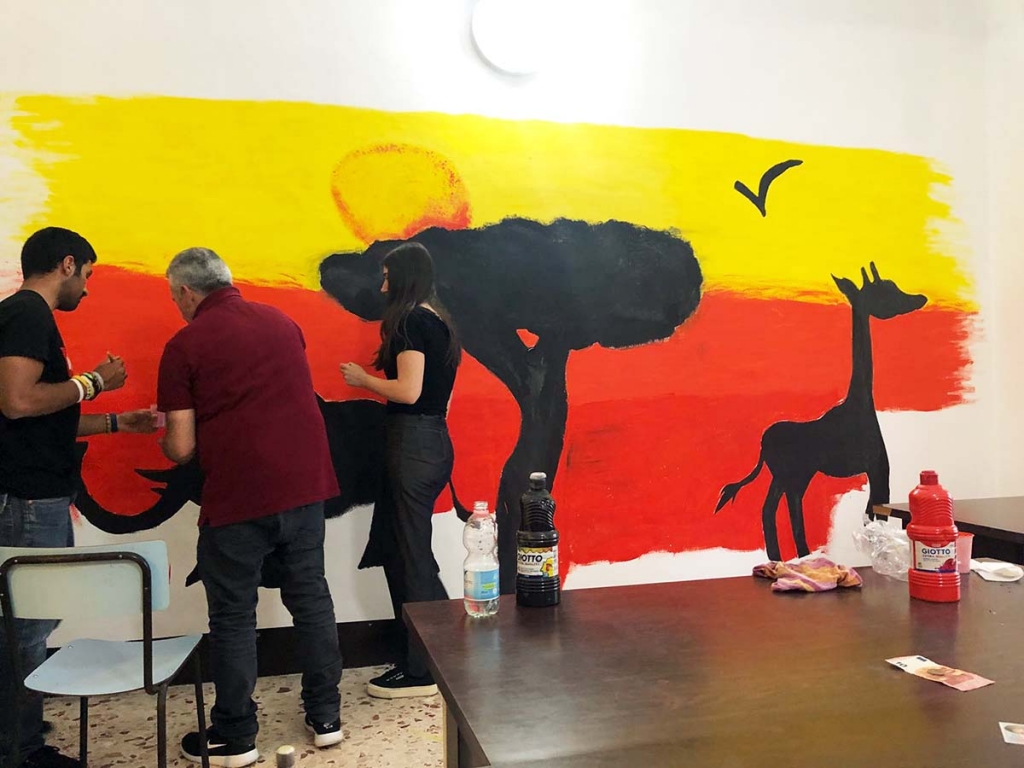 They are children and young people who come by sea, on old boats that are unstable and overloaded, risking their lives almost to every wave. Often they do not understand Italian well and certainly are not aware of all their rights, nor of what awaits them. If they left on their own, or remain alone on arriving, what they may find is a future as clandestines, marginalized. But sometimes, things go differently, because there are also people who do think of them: like the Salesians of the "San Gregorio" community of Catania, in Sicily, which inaugurated a new house yesterday, May 2; its name: Najma, which means star in Arabic. The phenomenon of Unaccompanied Foreign Minors (MSNA) is clearly growing in Italy. And behind every statistical number, there is a life, an existence, that has been uprooted and completely isolated, exposed to forms of social risk such as crime, abuse, violence, poverty ... To offer human and Christian solutions to this phenomenon, the "Salesians for Social - SCS / CNOS Federation" started "M'interesso di te", or “I take interest in you, care for you”, at the beginning of 2018, a program which includes, among other tasks within Catania's Salesian world, the San Gregorio Center, on the outskirts of the city. As early as February, street educators, counselors, psychologists, lawyers and volunteers have been guaranteeing each child intercepted their support and protection, but only yesterday did the Salesians of San Gregorio and the Associazione MetaCometa Onlus officially inaugurate their headquarters. Present at the opening: the Provincial of the Salesians of Sicily, Fr Giuseppe Ruta, the Vicar General of the Archdiocese of Catania, Mgr. Salvatore Genchi, and institutional figures of both the Christian and Muslim religious, civil and social world. At the Catania's Najima "low threshold" center (ie for people in extreme difficulty), the so-called "invisible migrants" - MSNAs or recently of adult age - have the chance to wash, eat hot meals, rest, participate in activities of recreation and socialization. The "Najma" reception center also carries out social mediation work with related institutions and offers orientation courses for study and work, with the creation of study grants and job grants. Since many of the "invisible migrants" are exposed to the risk of addictions, health problems and exploitation, a legal advisory service is also available to them, both criminal and civil, and support in processing their personal document. http://www.infoans.org/en/sections/news/item/5387-italy-najma-house-for-invisible-migrants On 26th April, in the premises of COMECE (Commission of Bishops’ Conferences in the EU) took place the first European gathering of International Catholic Youth Organisations, in which Don Bosco International, as a facilitator and coordinator of the meeting, and Don Bosco Youth-Net as one of the most active Catholic Youth Organisation were represented.
The meeting was opened by Fr. Olivier Poquillon op, secretary general of COMECE, very supportive of this process, as there is a clear need and will from the bishops’ representation in Brussels to have young people’s voices heard by the institutions. The content of the meeting was very diverse: the presence of some organisations in the European Youth Forum, the new policy updates at EU level (such as the new Erasmus+, European Youth Strategy or the difficulties with the current EU grants), the work done with migrants and refugees by the different youth organisations, and the follow up of the Synod on Youth, in order to find possible ways to establish social and political dialogue with different stakeholders at national and EU level. DBYN’s study session Advocates for Education took place from 8 April until 15 April 2018 in Budapest.
24 participants, 4 trainers and several experts from all over Europe came together to learn and teach about Human Rights based advocacy. The study session took place in the European Youth Centre of Budapest, which offered us both financial and content based support. Furthermore as the European Youth Centre stands for “Access to Rights” and “Youth Participation” their policy framework was an ideal basis for the learning programme. To kick-off the week with a positive vibe, there was a teambuilding. When participating in a study session it’s essential to know the other participants and where they come from. After this the first session took place. It introduced Human Rights and advocacy but also politics & policies and values were included in this session. The trainers provided an efficient week programme which contained interactive sessions, introducing all aspects of the advocacy cycle. It’s not evident to learn about such a broaden topic in one week. To help to understand it more, DBYN invited two experts to explain in what way they advocate. They gave examples of how you could use it in your own organisation. One of the experts was Anca Sandescu. She is a Human Rights trainer and she clarified why Human Rights are so important when advocating for something: “I’m a true believer in the fact that we can build up a society in which we can respect everyone.” The second expert was Angel Gudiña. As executive secretary of Don Bosco International, he explained advocacy from a Salesian perspective and how he advocates towards European institutions and different policy networks. At the end of the week there was the opportunity to start up an advocacy campaign. In this way the participants could turn their words into actions and show what advocacy means for them or for their organisations. The outcomes of this study session are a guidebook on youth advocacy, several local advocacy campaigns, and a working group on integrating the No Hate Speech Campaign in the participant’s local organisations. Advocacy is a new strategic priority for DBYN. It’s part of our Master Plan 2018-2020 and we will continue working on this with our member organisations. asmien Beckers (first standing on the right), youth representative for DBYN participated in the first meeting of the European Youth Forum's Migration and Human Rights network. This is a short press release on the event. On 19 and 20 June the European Youth Forum’s Migration and Human Rights Network (MHRN) held its first meeting of 2017 in Brussels. The Network focuses on promoting the social inclusion and empowerment of as well as combatting discrimination against young refugees.
Eight youth organisations participated in the meeting, some of which are joining the Network for the first time. The Network took stock of the work that has been carried out since 2015, while participants exchanged on their organisations’ initiatives and projects. Furthermore, participants agreed on the aims of the network. Among others, the Network aims to motivate youth organisations to include young refugees within their structures, and to ensure that young refugees are involved in decision-making processes. The two main priorities the Network identified for 2017 are:
On the occasion of World Refugee Day on 20 June, Network members participated in the conference ‘Time to be welcome: youth work and integration of young refugees’, where they showcased their projects on non-formal education, advocacy for refugee rights, empowerment and skills development and raising awareness about refugees. The joint press release from the European Youth Forum, the World Organisation of the Scout Movement and the EU-Council of Europe partnership in the field of youth who organised the conference is available here. On the first anniversary of the acceptance by the United Nations of the Sustainable Development Agenda till 2030, Don Bosco Network is launching A Salesian Response to the 2030 Agenda, emphasizing the commitment of Don Bosco organizations to the advancement of “poor and abandoned youth”. The Sustainable Development Goals were signed exactly a year ago and represent a challenge for the next 15 years. Unlike the Millennium Development Goals (MDGs), which were destined for developing countries, particularly the poorest, these apply to all countries, rich and poor. There are 17 Objectives that, with the accompanying 169 goals, constitute an agenda of progress and social transformation that will be achieved only if all stakeholders (governments, civil society, religious and private organizations) come together and work together. Don Bosco Youth-Net ivzw is one of the 18 co-signatories of this policy statement from the worldwide Don Bosco Movement. |
DBYNIn this blog, Don Bosco Youth-Net collects and publishes its news, VLOGS, policy statements and other information linked to our advocacy work. Categories
All
Archives
February 2024
|
- Home
- About
-
Training
- Upcoming activities >
-
Past activities
>
- Youth Guardians
- Rise: Design for emergent futures
- Mental Health in Youth Work
- Yout(h)echnology
- European School of Animators 2023
- The Future is Europe
- Voices of Youth 2022
- Educate to Elevate Youth
- SoS-Safeguarding
- Play It Covid-Safe!
- Coping over coffee
- Statement Coronavirus
- I Youth Advocate
- Camino
- European Summer School of Animators 2019
- The Journey Never Ends
- European Summer School of Animators
- Ready, Steady, Go !
- Advocates for Education
- Common ground
- Rise Up !
- DB4R >
- En Route >
- All Alien
- You(th) for Human Rights
- Generations of Participation - Past training
- Advocacy
- Resources
|
The international secretariat of Don Bosco Youth-Net ivzw is financially supported by the European Union, through its 'Erasmus+'-programme, and by the Council of Europe, through its 'European Youth Foundation'. This website is a publication of Don Bosco Youth-Net ivzw. The website reflects the views only of the author, and neither the European Commission nor the Council of Europe can be held responsible for any use which may be made of the information contained therein.
|
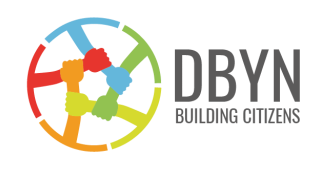
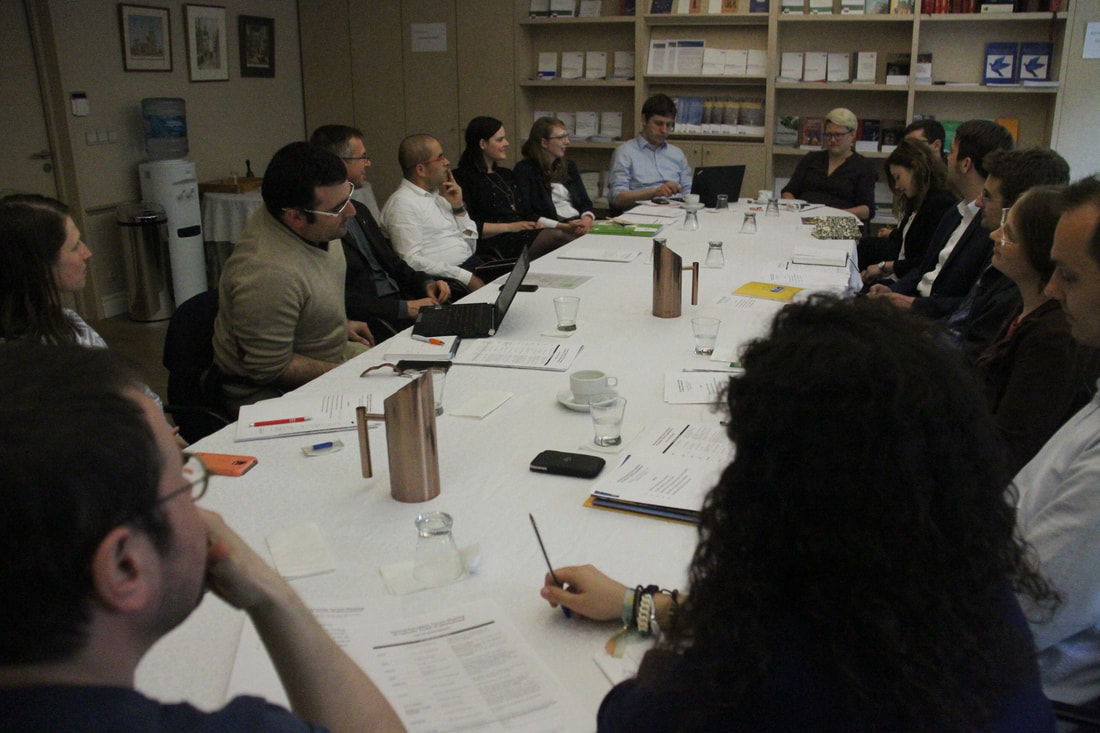
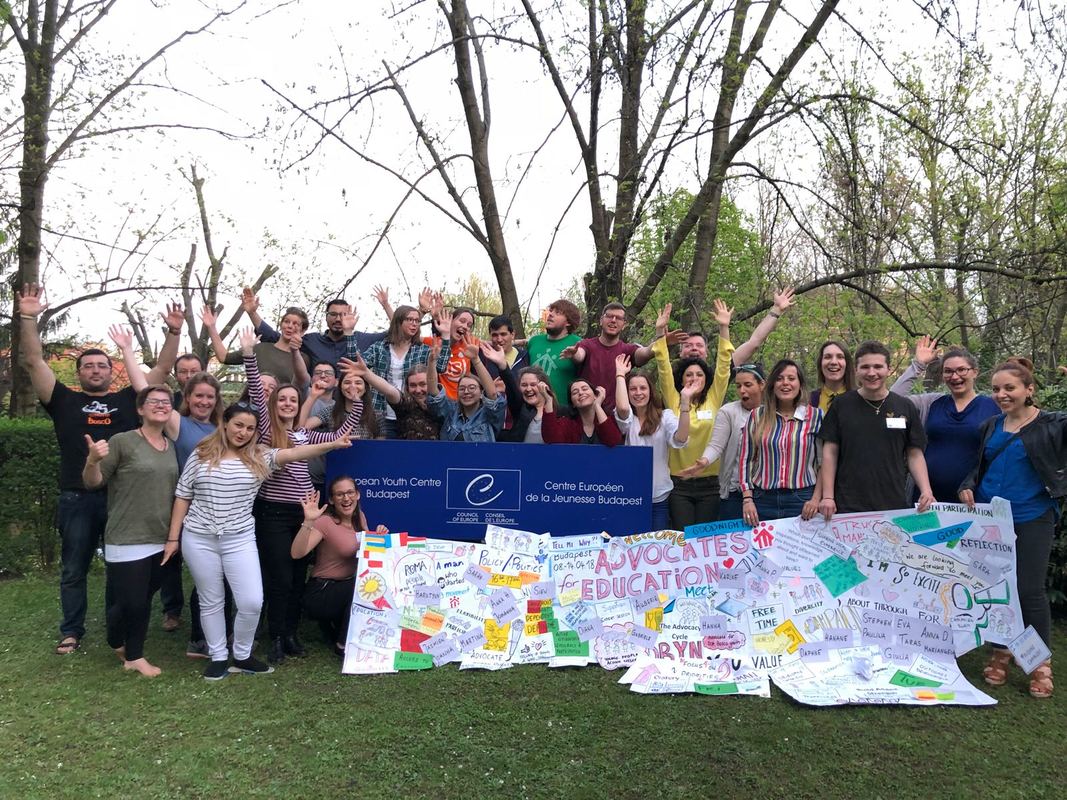
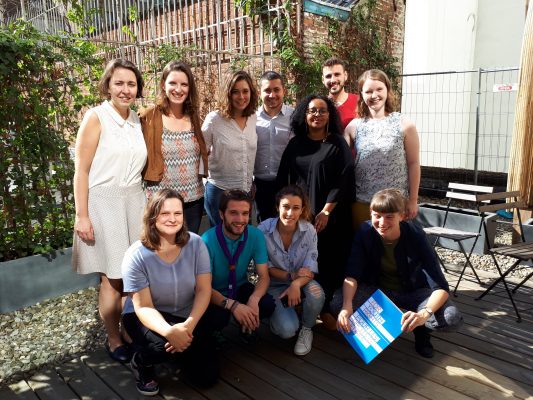
 RSS Feed
RSS Feed
